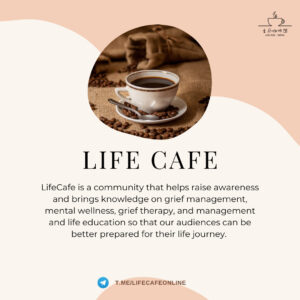
Coping with grief can be tough when others depend on you to make the end-of-life planning necessary following a death. If you are the household chef, the strain of coping with a loss of life is likely to be more taxing on you. Grief, regret, and guilt can combine as a direct consequence of lingering events that triggered the outcome.
Why do guilt and regret follow grief so closely? That may be because grief is often related to loss.
The reason for death, whether sudden and unexpected or one that could have been averted, is frequently the source of survivor guilt. Instead of experiencing guilt and remorse in grieving, some individuals recall sentiments of blame and regret, particularly if the death was caused by an accident that the dead person may have caused unwittingly. If you are suffering from feelings of guilt after the loss of a loved one, even though the death was not your fault, you may find solace in findings ways to forgive yourself.
1. Establish order
One of the initial things to do if you are coping with cumulative grief is to take it step by step. Cumulative grief is a specific kind of serious grief when you experience additional sadness on top of additional sadness. This type of grief does not prevent the completion of healing one layer of grief before the next loss occurs. A sample of cumulative grief is driving a car while you are drunk and causing an accident.
Figuring out your grief or placing it in storage in distinct imaginary boxes will help you organize your grief. This can be an extremely difficult task since grief comprises many different emotions. Having distinct emotional recesses for your grieving will help you make comparisons and identify patterns, which will improve your healing.
2. Evaluate the circumstance
You could perceive things differently if you take a different angle. You could have been so overcome by sadness that you instinctively believed you were to blame for your loved one’s passing.
Take a step back and assess everything that occurred after things have calmed down for you and you are starting to think rationally again. To assist in determining the cause of death, read the police, and medical reports. Even while it could have seemed like you were responsible for the loss, there might have been other outside factors at work.
3. Reframe your perspective
A major reason that people often feel regret following their loved one dies is that they did not find closure a damaged relationship was not repaired, no one said I love you before the other died, or an estrangement was not resolved. If you find yourself feeling guilty that you did not do your part in restoring a failed relationship, try finding the positive things that made your relationship better.
Perhaps you make an effort to contact them? Despite the two of you having disagreements, did you still send invites, presents, and cards? Did you lend them a financial hand when they needed it?
A relationship is unique when it possesses all of these qualities. Sometimes all it takes to show someone you love and care about them is to try to repair a broken connection.
Death may give you a fresh perspective on your connection with a loved one, even if you couldn’t stand them, and help you start the healing process. Do you punish yourself because you believe you should be punished for allowing your loved one to die and being a horrible mother, sibling, friend, or spouse?
4. Seek forgiveness
Guilt, sadness, and regret all make your mourning process more difficult. To better process your sorrow, it might be helpful to keep these feelings apart from one another.
When you try to deal with all of these feelings at once, you could feel overpowered and unable to go on. Take each day as it comes. Sometimes it is better to seek forgiveness even after a loved one has passed away, you may keep up the connection and bond you shared. Before you feel at ease with the process of maintaining relationships with a loved one who has passed away, you’ll need to get used to having a lot of one-sided talks.
You can ask for forgiveness in the following ways:
Reading aloud a letter you’ve written to a loved one.
going on a lengthy stroll by yourself so you may spend some time with your loved one alone.
reestablish contact with those who were intimately connected to your deceased loved one.
Trying to make up for the wrongs you caused, even after you’ve passed away.
If your resentment keeps you from letting go of your grief and guilt about that person, talking out your feelings aloud to your loved one and affirming your decision to release yourself from the grieving process may help you feel more at peace.
5. Live a better life
If you didn’t get the closure or forgiveness you wanted prior to your loved one’s death, there is still hope. You can make up for things you didn’t do or say when they were alive by living your life in a way that honors your loved one.
Ask yourself how dreadful it is that your beloved loved one is being remembered as a legacy of sorrow that you choose to keep about if you are unable to get past the mourning process since the sadness serves as your present connection to the departed. Instead of focusing on the moments he or she lived and the joy they provided to your life, you’re concentrating on the moment they passed away. Isn’t that a dreadful responsibility to put on your family member?
6. Forgive yourself
When you learn to pardon others, it becomes easier to pardon yourself. If you wish to be able to pardon yourself, then you need to prove and understand the following.
- Empathy. Self-empathy entails being friendly to oneself and lowering one’s standards of oneself. Being your worst critic makes it harder to demonstrate empathy for yourself than for others. No one is flawless, and everyone makes errors. You’ll see that forgiveness is feasible after you retrain your mind to think in these terms.
- Kindness. Being nice to oneself also entails not being overly judgmental or critical of yourself.
- Compassion. Recognizing, enhancing, and forgiving oneself are all parts of practicing self-compassion. It also entails having compassion for oneself when you struggle, fail, or make a mistake.
- Understanding. Understanding your goals and worries, as well as your tolerances and boundaries, was a part of this.
To come to terms with yourself, be cognizant of the element of guilt in regret. Is there something among your body parts that wanted or prepared for something bad to occur to your loved one? If it is not there, then you are feeling guilty because of what is not there.
About Life Cafe:

